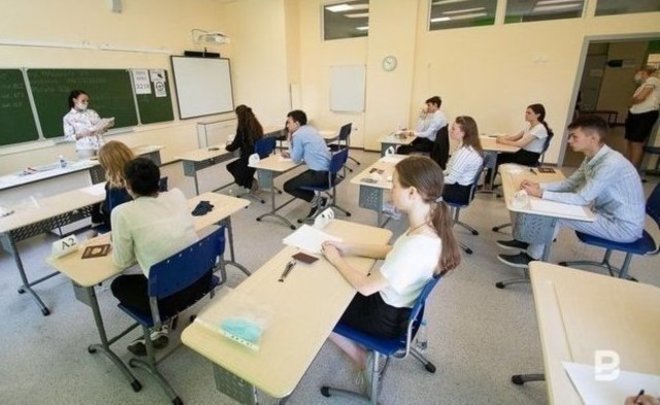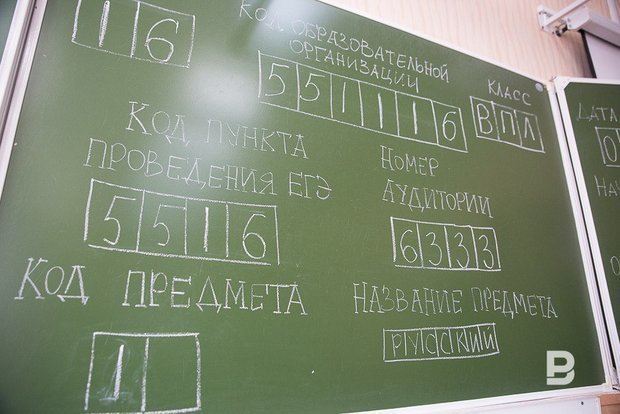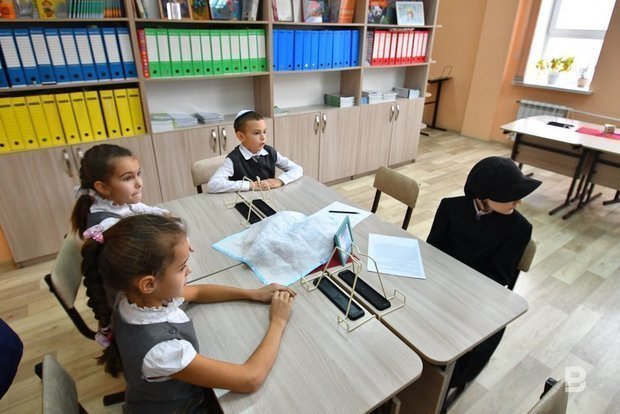‘Our education system is sick’: there are more and more home-schooled children in Tatarstan
Why a significant part of students prefer to study with their parents and online

“After the ninth grade, I understood that I did not want to go to college, and continuing my studies at school would cause a lot of difficulties," Daria Zharkova, a schoolgirl from Kazan, argued her decision to switch to family education in a conversation with Realnoe Vremya. As the Ministry of Education and Science of Tatarstan confirmed to the publication, there are still a lot of those who preferred this format of education to ordinary schools, and their number is growing. So, according to the latest data, their number has increased by almost 20% compared to last year.
Not in school lists
Family education is a format in which a child receives a general education outside of school. Parents are responsible for their studies.
When choosing this form of education, parents have an obligation to provide the child with the necessary material: to teach on their own or send them to an online school. At the same time, the student is not listed in the school's lists. However, in order to pass the certification, it is necessary to be enrolled externally in any institution that has a license and state accreditation.
There are two options for taking final and intermediate certifications:
- in public schools. For this, the child needs to be attached to an institution and take all exams in person;
- in online schools. Most often, this method is used by students who already get education online. In this case, they must pay for certification.
“Family education is when parents love a child and try to support him or her. If the child wants to learn, then it is absolutely fine. If a child does not want to study, then family education is profanation," says Pavel Shmakov, the director of Solntse school in Kazan.
At the end of school, students take the Unified State Exams together with their peers. There are no privileges for them, as well as the choice of the method of taking exams — they are full-time.
“I'm at peace when my daughter is at peace”
Parents and children who have chosen family education, with whom Realnoe Vremya talked, do not regret their decision. They are sure that such format is a guarantee of convenience and tranquility:
“The idea of transferring to an online school in the family originated quite a long time ago: in the 7-8 grade, I began to feel extremely uncomfortable in the company of teachers, health problems, psychosomatic manifestations began. After the ninth grade, I clearly understood that I did not want to go to college, and continuing my studies at my school would cause a lot of difficulties. So two weeks before the start of the school year, the decision was made to transfer to an online school, which I don't regret a bit," Daria Zharkova, an 11th grader, told about her experience.
The schoolgirl manages her own time — all video tutorials are on the record, you just need to do your homework: “In the final grades, this is especially important, because you need to put the preparation for the Unified State Exam somewhere.” If she has any questions, she can contact the chat, where the teacher, as in a regular school, will help her with the study of the material. Her parents fully supported her in this decision.

“We saw what Dasha had to go through in an ordinary school. Attacks from teachers, lack of free time. Besides, just at the end of the 9th grade, this shooting occurred in the gymnasium, it was very disturbing. She didn't even have to persuade us. I feel calm when my daughter feels calm," Daria's mother Inna Rustyamova explained her position.
It is not only senior schoolchildren who are switching to family education. The mother of a sixth-grader, who wished to remain anonymous, also does not regret refusing to study at a traditional school.
According to her, the decision to transfer the child to family education was made for a number of reasons:
- it took more than an hour to get to school. There was no institution near the house with an in-depth study of the desired language;
- the need for five-day training. In Kazan municipal schools, the school week lasts 6 days, the child has only Sunday to rest, on which they have to do homework for the following week;
- bullying. According to the interlocutor of the publication, due to the lack of a permanent teacher in the daughter's class, bullying began to flourish among the children;
- hot meals: “I wanted the child to receive a full, balanced hot meal, not to eat hastily at recess with cold, rarely delicious food from chipped dishes.”
“The child loved learning. To be honest, for me it was a nice bonus to other advantages. She doesn't want to go back to her old school. We spend more time together, talk about everything, the relationship with the child has become more trusting. My daughter's anxiety has decreased, there is no source of constant stress in the face of those who bullied her at school. She got the opportunity to spend more time outdoors, to engage in music, sports, creativity, foreign languages," she said.

According to the mother, her daughter is learning to manage her time on her own. In the evenings, she makes a schedule for the following day — clubs and tutors on weekdays, walks and games on weekends.
“I personally do not attribute the notorious 'lack of socialisation' to the disadvantages of family education, since my child is a successful student of a children's music school, which he attends four times a week, has friends with the same interests and values. Besides, the daughter goes to physical therapy classes twice a week, to the pool, where she also communicates with children. Naturally, all children are different, and bright extroverts, leaders in children's groups, energetic activists, the option of family education is most likely not suitable," said the interlocutor of Realnoe Vremya.
Some teachers also support family education. Pavel Shmakov is sure — it's not about the format, but the quality of training:

“Live communication with the teacher is important”
However, in family education, as in conventional, you can find a number of disadvantages. The interlocutors of Realnoe Vremya highlighted several shortcomings of the format:
“Personal training, of course, is always a little better. Live communication with the teacher is important when you can approach, talk eye to eye. The only thing is that it is difficult to talk in person in a class of 30 people. In schools with 15-20 people in a class, it's easier.

“High cost and unavailability for most parents. Online schools, certification — paid, are not available to all families. Besides, for successful education at home, if parents have chosen an online school, they need a personal computer, headphones with a microphone, textbooks, atlases, contour maps, a separate workplace with furniture. Not all families can afford it.
“The disadvantages for me personally are only in the technical part of the site, there are very few of them and they are quickly solved by technical support. This also results in a plus — technical support will always help if there are any difficulties in navigating the site, concluding a contract, and so on," the parents said.
Besides, among the disadvantages, mothers note a large amount of time that a student has to spend at a computer monitor, which negatively affects the child's health. Nevertheless, in their opinion, it happens that the advantages of family education outweigh the disadvantages.
According to the Tatarstan Ministry of Education and Science, according to the latest data for October 2022, there were 2,523 home-schooled children in the republic, despite the fact that a year earlier there were almost 20% fewer of them — only 2,061 people. But this is not the limit — last May, 3,333 Tatarstan schoolchildren preferred family education.